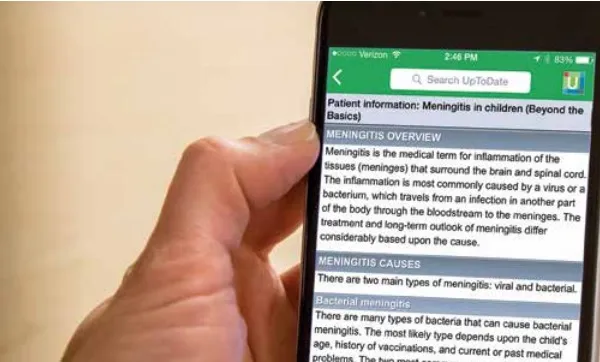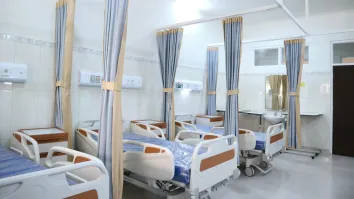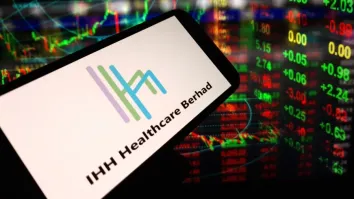
Wolters Kluwer delivers precision healthcare for better decision-making
At the tap of a finger, clinicians can access the most current clinical content and evidence-based recommendations to improve patient care.
From hand-held computers to real-time patient data, technology has been remarkably transforming the healthcare landscape around the globe. Devices are now becoming more integrated, making it easier for nurses and doctors to communicate with each other and access important information within a centralised system.
Wolters Kluwer further redefines healthcare with fresh and innovative solutions aimed at helping clinicians make the best possible decisions for their patients.
The firm’s UpToDate Clinical Decision Support (CDS) System includes evidence-based clinical topics and recommendations, a mobile app, patient education, graphics search, drug interactions, and medical calculators. Over the years, this platform has helped clinicians improve clinical effectiveness at the point-of-care.
Dr Denise Basow, MD, President and Chief Executive Officer, Clinical Effectiveness, Wolters Kluwer, says that clinical effectiveness is simply the application of the best knowledge available from clinical research and experience and patient preferences in improving the quality of care. According to her, clinicians must be able to use what is known to be effective in the research setting and apply that into practice.
Improving outcomes
With UpToDate, clinicians can have access to Wolters Kluwer’s comprehensive clinical content that highlights the importance of clinical decision support in providing the best care possible. Dr Basow says that in the case of atrial fibrillation, clinical research concludes that a blood thinner results in a much lower risk of stroke and blood clot problems. However, in reality, about 30% of patients do not receive these needed medications due to the gap between research and practice.
“What’s happening from what we know to what’s happening in clinical practice? Some of that can be the knowledge of the healthcare provider. Do they actually understand which patients need blood thinners and prescribe them? Do they know which blood thinner to prescribe? Do the patients understand how important it is that they take these medications and take them regularly? Do they know once they take the medication that they need to have follow up blood tests? A lot of things can go wrong when we go from the research to the clinical setting. What clinical effectiveness is all about is trying to develop a process that helps to put the knowledge in the hands of the right people so we can be more effective in care,” Dr Basow adds.
Unmatched reputation
Wolters Kluwer has gained a prominent reputation in the area of clinical effectiveness, viewing it as their primary job to help, clinicians, and healthcare systems to make the best care decisions. The firm continuously updates the clinical decision support system to include the latest research in over 24 specialties. It features Practice Changing UpDates, a section which highlights selected specific new recommendations and/or updates that may change usual clinical practice.
“We’ve been working in this area of clinical effectiveness, trying to improve care through clinical decision support for many many years. So we have a lot of experience with how clinicians use medical research and how best to deliver that information. And then we also have research on how that impacts healthcare,” Dr Basow says.
For Wolters Kluwer, the measure of the effectiveness of their tools is when clinicians consult them at the point-of-care. Basow shares that data analytics for UpToDate reveal that clinicians indeed use the solution heavily at the point-of-care, the primary use of which is to answer clinical questions that arise during the normal workflow of seeing patients. She adds that these clinicians have also seen major changes in their decision-making due to their use of UpToDate.
“Somewhere between 18 and 37% of the time, when a physician consults UpToDate to answer a clinical question, it actually changes something that they are going to do. These aren’t trivial decisions. These are patient-critical decisions. Changing a diagnostic test, changing a medication, all the way down the chain of decision-making. Somewhere around a third of the time, clinicians are changing decisions when they get the right information at the right time in their hands,” adds Dr Basow.
More importantly, as clinicians enhance their decision-making in the process of changing their initial recommendations, they are also moving towards improved outcomes and better healthcare practices. Dr Basow says that peer-reviewed literature on UpToDate reveals improved health outcomes such as shorter lengths of stay and reduced adverse events. One of the studies also showed reduced mortality rate when hospitals adopted UpToDate.
Bringing clinical effectiveness to Asia
Clinicians and hospitals around the globe are experiencing the impact of UpToDate in their day-to-day operations. With UpToDate Anywhere, clinicians can access the top-of-the-line research anywhere that they have an internet connection.
Wolters Kluwer’s international popularity is also due to the fact that clinicians can search for the best information in their own language.
Wolters Kluwer plans to expand in Asia further in the coming years and hopes to tackle the challenges that Asian countries face in providing healthcare to the rapidly growing region. Dr Basow says that in Asia, Wolters Kluwer can help healthcare organizations make an impact with some simple first steps.
In other parts of the world, hospitals often begin with putting decision support tools on clinicians’ mobile devices and then progress to other stages of implementation for most effective care. “We can talk about very sophisticated types of implementations of decision support to improve clinical effectiveness, we can talk about HIMSS Stage 7 hospitals, fully integrated decision support, alerts, clinical rules being put into place and that most certainly is an ideal scenario for the application of clinical decision support. Sometimes people dismiss these tools, saying ‘Oh we don’t have the technology, we don’t have the resources’. And I think the point is that it can start very simply and move from there,” says Dr Basow.
Improving clinical effectiveness in Asia means improving the awareness that technology can revolutionise healthcare by improving quality and cutting down on cost. Dr Basow says that is important not only to have an awareness of the existence of these solutions, but also of the benefits that they can provide amidst conventional wisdom.
In some ASEAN countries such as Indonesia and Malaysia, Wolters Kluwer helps hospitals by reaching out to the top decision makers and allowing them to see the impacts of having clinical decision support in their institutions. Despite the lack of discussion at the government level in the countries, there is a lot of room for hospital leadership to play around with the latest tools that can help them provide better care.
“It’s up to local hospitals to implement these types of tools and we’ve seen some hospitals where there’s considerable support for this at the highest levels of the hospital. And in those institutions where there is a lot of support for these tools at the top of the hospital, we see very good success, so the clinicians will adopt it and apply it to patient care,” Basow says.



















 Advertise
Advertise





